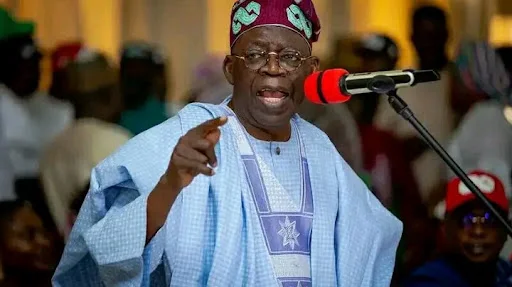In the wake of President Tinubu's recent inauguration, intense pressure is being exerted from various quarters on the selection of the ministerial list. With expectations high and diverse interests at stake, the president finds himself navigating through this delicate process of choosing the individuals who will form his cabinet.
President Tinubu's reputation as a skilled political strategist has brought him under scrutiny as various interest groups, politicians, and stakeholders vie for their preferred candidates to be included in the ministerial list. This mounting pressure is not unexpected, given the significance of these appointments in shaping the future of the nation.
One of the primary factors influencing the pressure on President Tinubu is the need for regional balance and inclusivity. Nigeria is a diverse nation with distinct geopolitical zones, each deserving representation in the governance structure. As such, leaders from different regions are advocating for the inclusion of individuals who can effectively articulate and address the unique needs of their respective regions.
Another crucial consideration is the competence and expertise of potential ministers. Nigerians, both within and outside the political sphere, want to see a team with the necessary skills and experience to tackle the myriad of challenges facing the country. This demand reflects the desire for capable hands that can effectively drive policy implementations and deliver on promises.
Additionally, there are underlying political dynamics that add to the pressure faced by President Tinubu. Rival political parties, interest groups, and even allies are positioning themselves to influence the choice of ministers. Many are keen to secure positions for their loyal members or advance their own political aspirations through such appointments.
President Tinubu, known for his meticulous decision-making process, will undoubtedly approach this task with utmost care. Balancing regional interests, competency, and political dynamics requires careful evaluation and consideration of all factors at play. However, it is crucial that the president maintains independence in his decision-making, ensuring that merit and the best interests of the nation prevail over political expediency.
The outcome of this ministerial selection process will have far-reaching implications for Nigeria's development and progress. The chosen individuals will serve as the president's trusted aides, responsible for implementing policies, driving economic growth, and addressing pressing societal challenges.
As Nigerians eagerly await the unveiling of the ministerial list, it is imperative that President Tinubu remains steadfast, objective, and committed to selecting a team that can effectively serve the nation. Ultimately, the success of his administration will be determined by the competence, integrity, and dedication of those entrusted with these ministeries.
The pressure on President Tinubu to finalize his ministerial list is mounting from various quarters. As he navigates through these pressures, it is vital that he prioritizes the best interests of the nation, considering regional balance, competency, and political dynamics. Nigerians remain hopeful that the eventual selection of ministers will reflect the aspirations and dreams of a united, prosperous, and inclusive Nigeria.
Tags
News

